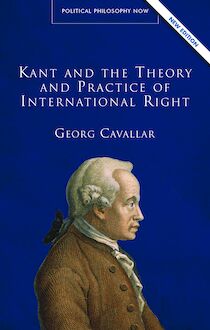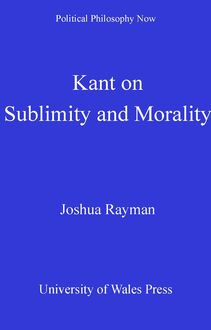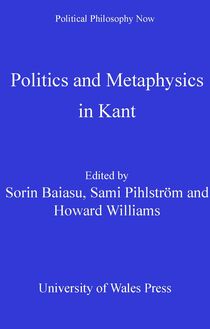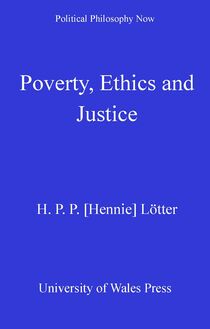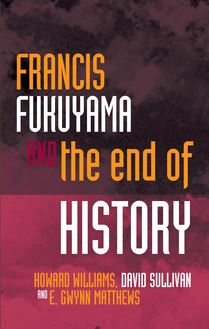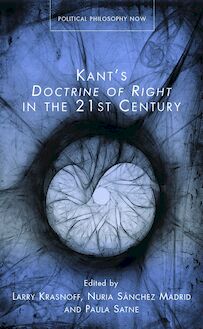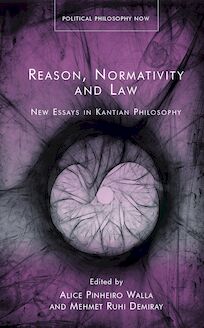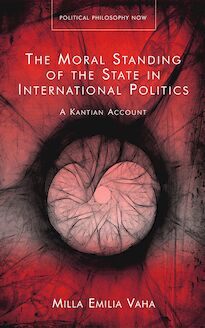-
 Univers
Univers
-
 Ebooks
Ebooks
-
 Livres audio
Livres audio
-
 Presse
Presse
-
 Podcasts
Podcasts
-
 BD
BD
-
 Documents
Documents
-
- Cours
- Révisions
- Ressources pédagogiques
- Sciences de l’éducation
- Manuels scolaires
- Langues
- Travaux de classe
- Annales de BEP
- Etudes supérieures
- Maternelle et primaire
- Fiches de lecture
- Orientation scolaire
- Méthodologie
- Corrigés de devoir
- Annales d’examens et concours
- Annales du bac
- Annales du brevet
- Rapports de stage
La lecture à portée de main
Vous pourrez modifier la taille du texte de cet ouvrage
Découvre YouScribe en t'inscrivant gratuitement
Je m'inscrisDécouvre YouScribe en t'inscrivant gratuitement
Je m'inscrisEn savoir plus
Vous pourrez modifier la taille du texte de cet ouvrage
En savoir plus

Description
Sujets
Informations
| Publié par | University of Wales Press |
| Date de parution | 15 juin 2014 |
| Nombre de lectures | 6 |
| EAN13 | 9781783162284 |
| Langue | English |
Informations légales : prix de location à la page 0,2174€. Cette information est donnée uniquement à titre indicatif conformément à la législation en vigueur.
Extrait
POLITICAL PHILOSOPHY NOW
Chief Editor of the Series: Howard Williams, Aberystwyth University, Wales
Associate Editors: Wolfgang Kersting, University of Kiel, Germany Steven B. Smith, Yale University, USA Peter Nicholson, University of York, England Renato Cristi, Wilfrid Laurier University, Waterloo, Canada
Political Philosophy Now is a series which deals with authors, topics and periods in political philosophy from the perspective of their relevance to current debates. The series presents a spread of subjects and points of view from various traditions, which include European and New World debates in political philosophy.
Also in series
Nietzsche and Napoleon: The Dionysian Conspiracy Don Dombowsky
Politics and Teleology in Kant Edited by Paul Formosa, Avery Goldman and Tatiana Patrone
Identity Politics and the Novel: The Aesthetic Moment Ian Fraser
Kant on Sublimity and Morality Joshua Rayman Politics and Metaphysics in Kant Edited by Sorin Baiasu, Sami Pihlstrom and Howard Williams
POLITICAL PHILOSOPHY NOW
Hegel and Marx after the Fall of Communism
David MacGregor
UNIVERSITY OF WALES PRESS CARDIFF
David MacGregor, 1998
New edition, 2014
All rights reserved. No part of this book may be reproduced in any material form (including photocopying or storing it in any medium by electronic means and whether or not transiently or incidentally to some other use of this publication) without the written permission of the copyright owner except in accordance with the provisions of the Copyright, Designs and Patents Act 1988. Applications for the copyright owner s written permission to reproduce any part of this publication should be addressed to The University of Wales Press, 10 Columbus Walk, Brigantine Place, Cardiff CF10 4UP.
www.uwp.co.uk
British Library Cataloguing-in-Publication Data A catalogue record for this book is available from the British Library.
ISBN 978-1-78316-072-3 eISBN 978-1-78316-228-4
The right of David MacGregor to be identified as author of this work has been asserted in accordance with sections 77, 78 and 79 of the Copyright, Designs and Patents Act 1988.
For Ethan and Rachael
Contents
Acknowledgements
Preface to the Second Edition
Introduction
1 Marx s Relationship with Hegel
2 Dialectics of Youth and Maturity
3 Hegel s Development, 1770-1801
4 Hegel and Tom Paine in the Age of Revolution
5 Revolution, Despotism and Censorship, 1801-1831
6 Property and the Corporation
7 Labour and Civil Society
8 The State in Time
Afterword
Notes
Bibliography to the Preface and Afterword to the Second Edition
Acknowledgements for the Second Edition
Howard Williams generously invited me to contribute this volume to the Political Philosophy Now series, and even suggested the title. Acquisitions editor Sarah Lewis kindly recommended this new edition. Joe Hermer, Paul Werstine, Betty MacGregor, Sandy Anderson, Kathy Kopinak, Sandy Aylward, Jacques Goutor, Jim Kow, Jane Borecky, Ted Winslow, Norma Jo Baker, Ken Westhues and Patricia Bishop offered advice and criticism. My friend Gillian Watts prepared the index for the book. The Research Grants Committee of King s College extended helpful financial assistance. Krista Patterson, Neisha Cushing and Dorothy Kessler provided invaluable assistance in preparation of the Preface and Afterword. I must also express gratitude for the painstaking work of the editorial staff of the University of Wales Press. The second edition of this book is dedicated to my children, Ethan MacGregor Bishop and Rachael MacGregor Bishop.
PREFACE TO THE SECOND EDITION
(22 November 2013)
Not long ago most commentators attributed Hegel s importance for political thought largely to his influence on Marx. 1 Today Hegel s colossal legacy is only just beginning to receive the attention it deserves. Acknowledgement of Hegel s importance for Marx - and for an understanding of modern politics - has occupied my writings on these two great nineteenth-century German thinkers.
The second edition of Hegel and Marx after the Fall of Communism provides an opportunity for me to pay homage to Luk cs, whose epochal works on the young Hegel, and the relationship between Hegel and Marx constitute an extraordinary model of incisive scholarship. Indeed my writing is guided by Luk cs s dictum that a correct view of the intellectual conflicts of the past can also act as a compass for the future . 2 In The Young Hegel , Luk cs s makes a persuasive argument for the profound influence of Hegel s Phenomenology of Spirit on Marx. Consequently in my own books I have paid more attention to the impact of Hegel s entire body of writings on Marx, especially Hegel s supposedly more arcane and conservative works, such as The Logic and The Philosophy of Right .
Luk cs declared that his own books became alien to him as soon as they were issued into the world. 3 I would not claim the same loss regarding Hegel and Marx after the Fall of Communism . My belief in the pre-eminence of Hegel as a political thinker has not faltered. However, Marx - like Hegel - has taken a different, unexpected shape in my mind.
Marx, and scholars of Marx, perpetuated a questionable version of the Hegelian legacy. The Afterword to this edition confronts an enigmatic Marx, in thrall with British free trade and its ideologues, Adam Smith and David Ricardo. In doing so, I highlight Marx s odd political loyalties, especially his anglophilia and blind dislike for Tsarist Russia - America s lone ally during the US Civil War. Marx s Capital claimed to examine the most advanced form of world capitalism, as achieved in England. However, with its solidly aristocratic ruling structures, Great Britain was hardly just a capitalist nation.
I began exploratory work in Hegel and Marx after the Fall of Communism tracing the enormous influence of the American Revolution on the thought of Hegel, especially in the writings of Thomas Paine. Throughout most of Marx s prodigious output the American Revolution is submerged - like some lost city of Atlantis. In my Afterword I use the work of Friedrich List to expose the radical roots of Hegel s thinking and chart a new approach to Hegelian thought, applying it to recent events in Russia and China.
The original text of Hegel and Marx after the Fall of Communism appears below exactly as first published.
Introduction
Hegel and Marx
Decisively opened to Western capitalism in the 1990s, the former communist republics have been baptized with blood and soaked in Pepsi-Cola. As I started to write this book, in the summer of 1994, the Canadian Harvey s burger chain and USA s McDonald s were fighting for space on Prague s Wenceslas Square in the infant Czech Republic. Kellogg s announced a Corn Flakes plant opening in Latvia. In the summer of 1996, the great newspaper Pravda , founded by Lenin before the Russian Revolution, disappeared. It was closed by its two Greek owners who complained that the newspaper s staff had become lazy and unmanageable. In January 1997, as this book neared completion, the boss of a notorious Moscow gang was shot to death in his BMW 525 sedan a few metres away from Moscow police headquarters. Two bodyguards waited in a small Russian Zhiguli car just behind him. Mr Naumov s brazen slaying was followed by a startling disclosure. His bodyguards were themselves members of an lite paramilitary police unit who were protecting the gang leader under a contract for cash signed by their superior officers. 1
Once Moscow printing presses flooded Europe and North America with bargain copies of Lenin, Engels and Marx. Today they are run by apostles of the Harvard Business School. Jobless ex-Soviet rocket scientists hawk nuclear secrets of the FSU (former Soviet Union) to Western news correspondents and Third World dictators. Where previously their greatest concern may have been with the secret police, foreigners in Moscow risk being mobbed by beggars or murdered by the Russian Mafia. Wealth looted from the FSU by former commissars and industrial apparatchiks is laundered in the West and reappears in Russia and the other republics as respectable foreign investment . An expert on the Italian Mafia warns that unless the Russian state learns to produce the basic goods and services which are associated with the definition, enforcement and protection of property rights Sicily is a reminder to Russians of the path they are likely to go down . 2
The Soviet superpower has all but become a US client state, and its erstwhile fealty to Marx has evolved into a cruel joke, as illustrated by US investigative reporter Seymour Hersh:
A former senior State Department official provides a graphic description of his visit to a former Soviet republic: My image is Harpo Marx. You go to discuss foreign affairs with the Foreign Minister. As you get up to leave, he opens his coat. He s got a bottle of aspirin and a $3.95 watch for sale. 3
In the United States a fashionable auction house reports there is no longer much demand for artefacts associated with early twentieth-century Marxist revolutionaries. A document autographed by Trotsky went for a song. Marxism has lost its former market value.
Now that the West has less need to compete ideologically with world communism the fa ade of equality and freedom - never very convincing in any event - is being lifted entirely from social relations. Race riots are common in big European cities. In the USA and Canada equal opportunity legislation is abandoned. The poor are to be jettisoned and the rich allowed to pollute at will. Similar movements are at work in the nations of the European community, and in Australia and New Zealand. Any notion that government should be independent of the business system has been discredited, in theory as well as in practice. In 1995, to cite an instructive example, the world-famed Royal Canadian Mounted Police sold its name
-
 Univers
Univers
-
 Ebooks
Ebooks
-
 Livres audio
Livres audio
-
 Presse
Presse
-
 Podcasts
Podcasts
-
 BD
BD
-
 Documents
Documents
-
Jeunesse
-
Littérature
-
Ressources professionnelles
-
Santé et bien-être
-
Savoirs
-
Education
-
Loisirs et hobbies
-
Art, musique et cinéma
-
Actualité et débat de société
-
Jeunesse
-
Littérature
-
Ressources professionnelles
-
Santé et bien-être
-
Savoirs
-
Education
-
Loisirs et hobbies
-
Art, musique et cinéma
-
Actualité et débat de société
-
Actualités
-
Lifestyle
-
Presse jeunesse
-
Presse professionnelle
-
Pratique
-
Presse sportive
-
Presse internationale
-
Culture & Médias
-
Action et Aventures
-
Science-fiction et Fantasy
-
Société
-
Jeunesse
-
Littérature
-
Ressources professionnelles
-
Santé et bien-être
-
Savoirs
-
Education
-
Loisirs et hobbies
-
Art, musique et cinéma
-
Actualité et débat de société
- Cours
- Révisions
- Ressources pédagogiques
- Sciences de l’éducation
- Manuels scolaires
- Langues
- Travaux de classe
- Annales de BEP
- Etudes supérieures
- Maternelle et primaire
- Fiches de lecture
- Orientation scolaire
- Méthodologie
- Corrigés de devoir
- Annales d’examens et concours
- Annales du bac
- Annales du brevet
- Rapports de stage
